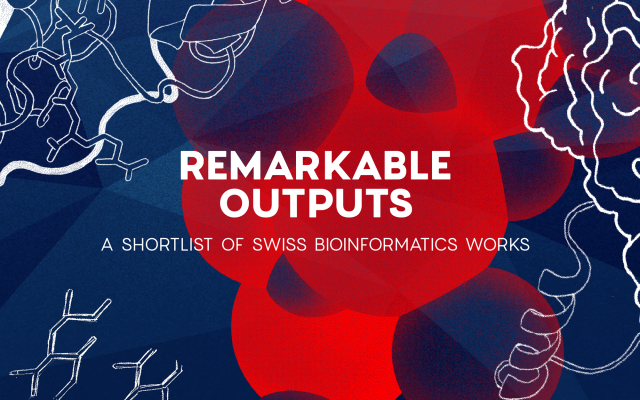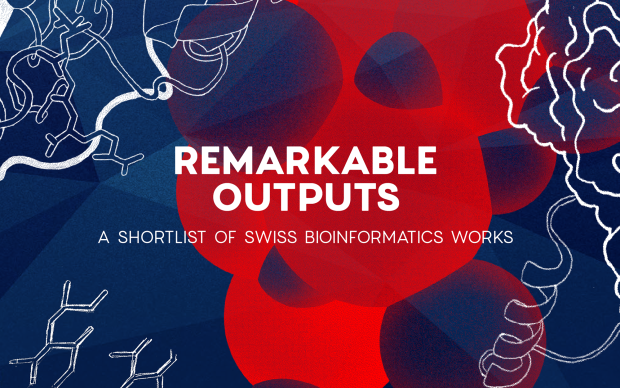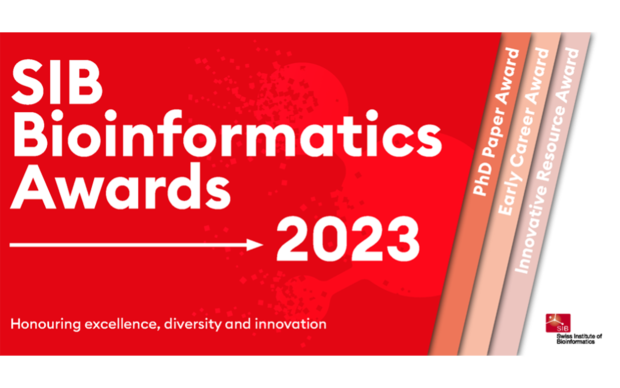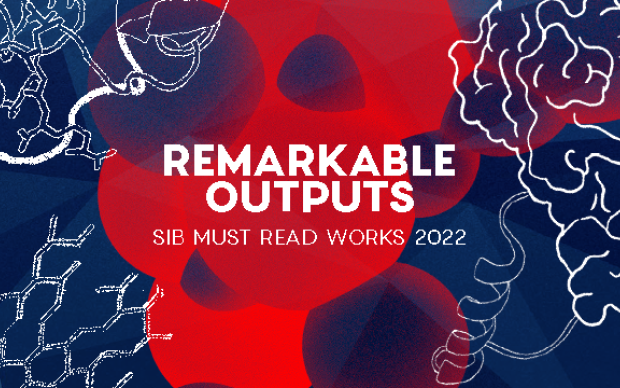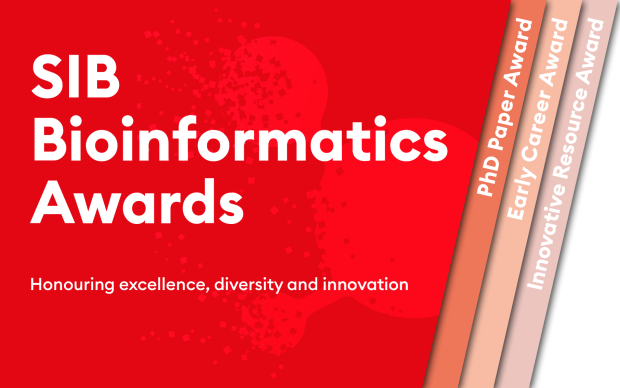Staying abreast of the latest advances and bright ideas emerging in a field as diverse as bioinformatics can be challenging. Since 2019, up to 10 notable outputs by our members are selected by the Award Committee for recognition as the SIB Remarkable Outputs. This annual shortlist includes peer-reviewed publications, preprints, software tools, databases and outreach initiatives. It contributes, year after year, to raise awareness of the importance of bioinformatics as a discipline.
An annual spotlight on the excellence and diversity of Swiss bioinformatics achievements
Over the years, the Remarkable Outputs have contributed to highlight a range of works by the SIB community:
- Cross-disciplinary recognition: 43 groups have seen their work selected, spanning the fields of systems biology and genetics, computational evolutionary genomics, personalized health informatics, populations genetics and evolutionary bioinformatics to cite only a few.
- Diverse contributions: 25 papers (including 3 preprints), 14 tools, and 4 outreach outputs including a website and a training course.
- Collaborative achievements: over a third of these distinguished outputs have emerged from collaborative efforts across different SIB groups.
Discover the past Remarkable Outputs:
Submission criteria and process
Top reasons to enter
If you are an SIB Member, don't miss this opportunity to bring attention to the exciting work of your team. Each group is entitled to one submission only and the selection is done by the SIB Award Committee. If your work is selected, it will benefit from widespread internal and external visibility. This includes an invitation to present your work during the [BC]2 Conference in Basel (8-10 September 2025). Additionally, your work will gain exposure across various SIB communication platforms, such as social media, newsletters or annual report.
The call for Remarkable Outputs is closed.
- Any output from SIB Members will be considered. This includes, but is not limited to, peer-reviewed publications, preprints, resources, software tools, databases, videos, tutorials and/or outreach programmes, science advocacy, etc.
- The output needs to have a clear link with SIB. This typically means that at least one of the lead authors, contributors or organizers is a SIB Member, and the output clearly displays the SIB affiliation. Collaborative projects, including those involving multiple SIB Groups, are eligible.
- Applications can be submitted by any SIB Member, however, there is a maximum of one submission per SIB Group. Prioritizations should be discussed within and between each group prior to submission.
- The publication/release/event date of considered outputs should be in the calendar year. Ambiguous cases will require justification by the applicant, and the Award Committee will decide on eligibility on a case-by-case basis.
- If the output relates to an update, a clear explanation should be provided of how and why this constitutes a major update such as a step-change/overhaul and not an incremental development in the usual life of the output.
- Option to submit to the [BC]2 Conference: you may also submit your output as part of the call for abstracts for the [BC]2 conference. Should your work be selected for both the Remarkable Outputs and as a talk or pitch at the [BC]2 conference, please note that, you will only be allowed to present your output in one programme slot.
- The evaluation process follows a typical peer assessment process. Each submission is reviewed and scored by at least one Award Committee member, who also seeks reviews and scores from at least two suitable SIB Members with no conflict of interest with the submission. The final ranking and selections are carried out by the Award Committee guided by independent reviews.
- The main criterion will be the academic merit evaluated across multiple dimensions, including breakthrough character, usability/user-friendliness, sustainability/reproducibility, empowerment and overall contribution to the field of bioinformatics and computational biology.
Submissions must include:
- An abstract (max. 350 words) describing the output and making a case for its academic merit
- URL of the output (if available)
- Explanation of how the output is associated with SIB and description of how this association is indicated in the output
- Evidence that the output was published/released/occurred in the calendar year
- The names of 3-5 SIB Members not associated with the work who could act as suggested reviewers



